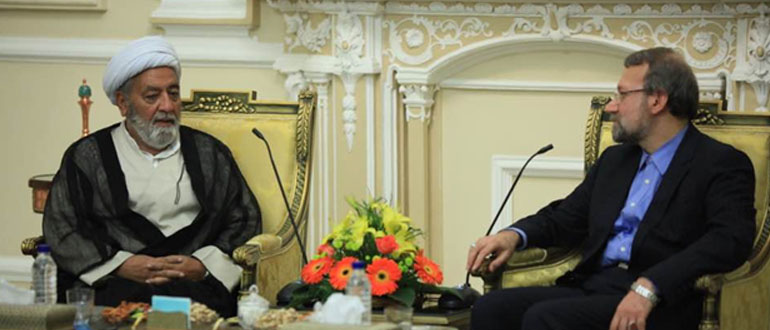Eleven years after his passing, the towering legacy of Moulana Iftikar Hussain Ansari continues to be a guiding light for the people of Kashmir and beyond.
By Syed Karar Hashmi:
Eleven years after his passing, the towering legacy of Moulana Iftikar Hussain Ansari continues to be a guiding light for the people of Kashmir and beyond. On his 11th death anniversary, tributes poured in for the revered leader, remembered not just for his profound scholarship but also for his unwavering commitment to sectarian harmony. In the complex tapestry of Kashmir’s socio-political history, certain figures stand out not merely for their leadership, but for their unwavering moral compass and their ability to unite.
As Kashmir commemorates the 11th death anniversary of Moulana Iftikar Hussain Ansari, his legacy emerges not as a relic of the past, but as a poignant and urgently relevant guide for the present. Widely regarded as one of the most influential Shia leaders of modern times, Moulana Ansari’s stature was immense, earning him deep respect in international centers of Islamic learning and leadership, including the Islamic Republic of Iran. Yet, his true greatness lay in a profound paradox: while he was a deeply respected sectarian figure, his life’s work was dedicated to transcending sectarian divides.
An Architect of Harmony
In an era often marred by fragmentation, Moulana Ansari stood as a colossus of communal harmony. His life was a testament to the belief that faith should be a bridge, not a barrier. He never promoted one community over another, investing his immense credibility and energy into strengthening the foundational bonds of brotherhood between Shia and Sunni communities. He was, in essence, an architect of unity, whose sermons and public addresses consistently highlighted the shared tenets of Islam and the common cause of the Kashmiri people. His demise was felt not as a sectarian loss, but as a collective setback for the entire Koshur nation, a testament to the universal respect he commanded.
The Scholar and the Polyglot
Beyond, the political leader was a man of immense erudition. Moulana Ansari was a lifelong pursuer of knowledge, whose intellectual journey took him from the scholarly halls of Najaf and Qom to the hearts of the common people. A preeminent polyglot, he possessed a commanding grasp of Kashmiri, Urdu, Persian, Arabic, and English. This linguistic prowess was not merely an academic achievement; it was his tool for diplomacy, for building bridges with international religious authorities, and for articulating the nuances of faith and identity with profound clarity to diverse audiences, from the local villager to the foreign diplomat.
A Dual Role: Spiritual Anchor and Political Guide
Moulana Ansari represented a rare breed of leadership that seamlessly blended spiritual authority with pragmatic political guidance. For his followers, he was a Mujtahid ’—a source of emulation and spiritual solace. For the wider public, he was a clear-headed political voice who always prioritized the welfare and betterment of the Kashmiri people. He navigated this dual role with remarkable dexterity, ensuring that his political decisions were always informed by ethical and spiritual principles, and that his religious guidance remained compassionate and grounded in the realities of his people’s lives. His influence thus extended from the intimate space of personal faith to the broad arena of public policy.
An Enduring Void Eleven years on, the void left by his passing is more palpable than ever. In a landscape that continues to grapple with uncertainty and division, the absence of his calming presence, his authoritative voice for unity, and his strategic foresight is deeply felt. The annual commemorations are, therefore, not just an act of remembrance but a collective reflection on the values he embodied. As tributes pour in from across the region, the message is unified: the best way to honor Moulana Iftikar Hussain Ansari is to re-dedicate ourselves to the principles he lived by. To hold recitations of the Holy Quran and offer prayers (Fateha) for his soul is a pious duty. But the greater tribute is to champion the cause of communal harmony, to pursue knowledge with sincerity, and to serve the people with selflessness. The final prayer on the lips of those who remember him is a simple, heartfelt plea: May the Almighty Allah grant this noble soul the highest station in the gardens of Jannatul Firdous. Ameen



